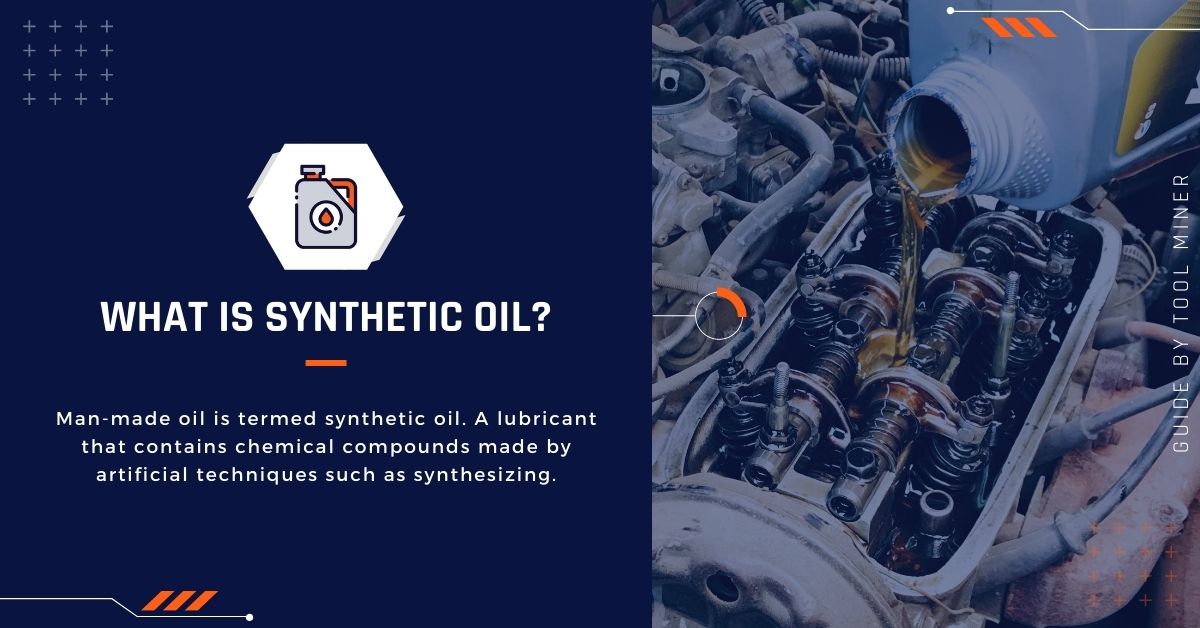What Is Synthetic Oil And Synthetic Blend? [2024 Guide]
There are massive debates about engine oils. “Which is the best, why it is the one, What’s the difference, how it is possible”. In order to answer all these questions, I have geared up this small guide on synthetic oils
The guide will help you know “what is synthetic oil. what is synthetic oil made of, is synthetic better than synthetic blends, API base oil groups, and finally advantages of synthetic oils?
So, before you put oil in your ride and fire up the ignition. I say you should fuel yourself with some info…
What is Synthetic Oil?
So, in simple words, man-made oil is termed synthetic oil. A lubricant that contains chemical compounds made by artificial techniques such as synthesizing.
What is Synthetic Oil Made Of?
- Base Oil
- Powder Additives
- Carrier Oil
The synthetic and conventional/traditional motor oils are made from the refining process.
Many synthetics start’s their journey with highly refined crude oil and this crude oil is obtained from deep underground mining.
Thus, the source of all types of oil is the same. The factor which differentiates the synthetic from other oils is the level of refinement.
This level of refinement obtained depends upon the manufacturing procedure of base oils. These oils are divided into 5 main base oil groups.
API Base Oil Groups
- Group I
- Group II
- Group III
- Group IV
- Group V
Remember that there is a clear-cut difference between synthetic or other oils used in air compressors and synthetic or other oils used in cars.
Those are called “Air Compressor Oils” and these are referred to as “Motor Oils.
Synthetic Blend Vs Full Synthetic
What Is Synthetic Blend oil?
Synthetic blends are less refined. Produced by combining conventional oil with full synthetic oils. You do get the benefit of more refinement and additives with a superior-quality synthetic blend.
But, impurities come along in lower degrees. Also, uneven molecular size from conventional oils remains in the blend at a minor level.
Surely they are low-priced than full synthetics. But they are more powerful than conventional oils.
What Is Full Synthetic Oil?
The full synthetic oils are extraordinarily refined. They are known as the purest type of synthetic oil. They are produced through complex chemical cycles i.e., chemical development from petrochemicals.
These cycles eliminate the impurities from the crude oil. Only even-size molecules are left for the modern engine’s demand. The uniform molecular size grants potent protection and powerful performance to the engine.
Full synthetic oils are 3 to 4x more expensive than synthetic blends. But, with 3 to 4x more protection and performance.
Best Full Synthetic Oils Examples
Here are a few examples of the best full synthetic oils:
- 0w20 Synthetic Oils
- 5w20 Synthetic Oils
- 5w30 Synthetic Oils
What are the advantages of synthetic oil?
Below are the advantages of synthetic oils.
advantages of synthetic oil
- 1. Synthetic oils give better fuel and oil economy.
- 2. Grants quick easier engine starts in chilly winter.
- 3. The synthetics enhance your car’s engine start time.
- 4. With synthetics, you can easily predict the oil quality.
- 5. All types of cars get perks from the additives in synthetic oils.
- 6. You can switch back and forth from synthetic to conventional oils without any harm.
- 7. They give superior gas mileage and save your engine from extra damage costs (engine damage due to old oil).
Synthetic Oil FAQs
Q: What color is synthetic oil?
Ans: A new and clean synthetic oil is translucent and has a lighter brown color just like a “toffee”. While a used-up synthetic oil has a darker brown or even black color just like tar.
Q: How long does synthetic oil last?
Ans: Due to the high refining process and added additives the synthetic oils last much longer than regular motor oils. It’s estimated that a full synthetic oil usually lasts from 10,000 to 15,000 miles. In terms of years, you only need to change the oil once a year.

